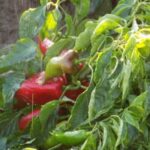Are you thinking of starting a vegetable garden in Portland, Oregon? You’ve come to the right place. In this article, we will provide a comprehensive guide to gardening in Portland, including tips for selecting the best vegetables for your garden, preparing your garden plot, planting and caring for vegetables, seasonal gardening tips, community gardening resources, organic gardening practices, and harvesting and preserving your bountiful harvest.
Portland’s unique climate and soil conditions make it an ideal location for growing a wide variety of vegetables. From the mild temperatures to the rich soil, there are plenty of opportunities to create a thriving vegetable garden in this city. Whether you’re a seasoned gardener or just starting out, this article will help you make the most of your gardening experience in Portland.
Gardening is not only a rewarding hobby but also an important part of sustainable living in Portland. Growing your own vegetables can help reduce food miles, decrease carbon emissions, and promote healthy eating.
Additionally, by participating in community gardening programs and implementing organic gardening practices, you can contribute to the overall well-being of the city while enjoying the fruits of your labor. So let’s dive into the world of vegetable gardening in Portland and discover how you can create a successful garden that yields delicious and nutritious produce throughout the year.
Best Vegetables to Grow in Portland Oregon
When it comes to gardening in Portland, Oregon, vegetables are a popular choice due to the city’s favorable climate and soil conditions. Portland’s temperate oceanic climate with cool, wet winters and warm, dry summers provides an excellent environment for growing a wide variety of vegetables throughout the year. The Willamette Valley’s rich, fertile soil also contributes to the success of vegetable gardening in the region.
Some of the best vegetables to grow in Portland, Oregon include tomatoes, peppers, kale, lettuce, carrots, and broccoli. These vegetables thrive in the city’s climate and are well-suited for home gardeners. When selecting vegetables for your garden, it’s important to consider not only their compatibility with Portland’s climate but also your own personal preferences and dietary needs.
In addition to the aforementioned vegetables, other suitable options for gardening in Portland, Oregon include garlic, onions, cucumbers, zucchinis, and various herbs such as basil, cilantro, and rosemary. These vegetables are relatively low-maintenance and are known to produce abundant harvests when cultivated in the area. For those who are new to vegetable gardening in Portland or seasoned gardeners looking to diversify their crops, these suggestions can serve as a good starting point for planning a successful garden.
| Vegetable | Best Season |
|---|---|
| Tomatoes | Spring/Summer |
| Peppers | Summer/Fall |
| Kale | Fall/Winter |
Preparing Your Garden Plot
Soil Preparation
Before starting your vegetable garden in Portland, it is essential to prepare the soil properly. The first step is to test the soil pH and nutrient levels. Portland’s soil tends to be slightly acidic, so adding lime can help balance the pH. Additionally, incorporating organic matter such as compost or well-rotted manure into the soil can improve its structure and fertility. It is also important to remove any weeds or debris from the garden plot before planting.
Choosing the Right Location
Selecting the right location for your garden plot is crucial for successful vegetable gardening in Portland. Most vegetables require at least 6-8 hours of sunlight per day, so it’s important to choose a spot that receives adequate sunlight. Additionally, consider factors such as drainage and proximity to water sources when choosing a location for your garden. Avoid areas with poor drainage or low-lying spots that may become waterlogged during Portland’s rainy season.
Container Gardening in Portland
For those with limited space or poor soil conditions, container gardening can be a great alternative for growing vegetables in Portland. Selecting large containers with good drainage and filling them with high-quality potting mix can provide an ideal environment for growing vegetables. Container gardening also allows for greater flexibility in terms of moving plants around to optimize sunlight exposure and protection from inclement weather.
By taking these steps to prepare your garden plot, you can ensure that your vegetable garden in Portland will have a strong foundation for producing bountiful and healthy crops year after year. With proper soil preparation and careful consideration of the garden plot location, you are setting yourself up for success in your gardening endeavors.
Planting and Caring for Vegetables
Step-by-Step Guide to Planting Vegetables in Portland
When it comes to planting vegetables in your Portland, Oregon garden, it’s important to consider the city’s unique climate and soil conditions. Start by selecting the vegetables that thrive in the region’s mild, wet winters and dry summers. Some popular choices for vegetable gardening in Portland include tomatoes, kale, carrots, and beets. When planting your chosen vegetables, be sure to follow the specific planting guidelines for each type of vegetable to ensure a successful harvest.
Once you have selected your vegetables, it’s time to prepare your garden plot. Dig up the soil to loosen it and add organic matter such as compost to improve its texture and fertility. This will provide a healthy environment for your vegetables’ roots to thrive. Consider utilizing raised beds or container gardening if your soil quality is poor or if you have limited space.
Tips for Watering, Fertilizing, and Managing Pests
In Portland’s Mediterranean climate, where summers tend to be dry, it’s important to water your vegetable garden regularly. Be mindful of water conservation practices and consider using drip irrigation systems or soaker hoses to minimize water usage while keeping your plants adequately hydrated.
When caring for your vegetable garden, also pay attention to fertilization. Organic fertilizers are often preferred by those practicing organic gardening in Portland. Use natural fertilizers like compost or well-rotted manure to enrich the soil without introducing harmful chemicals.
Pest management is another crucial aspect of caring for your vegetable garden. In Portland, common pests in vegetable gardens include aphids, slugs, and caterpillars. Consider natural pest control methods such as companion planting or introducing beneficial insects like ladybugs and lacewings into your garden.
By following these steps and tips for planting and caring for vegetables in Portland Oregon gardens, you can ensure a bountiful harvest that will delight both you and your family with fresh produce straight from your own backyard while maintaining sustainable practices suitable for the unique Portland climate.
Seasonal Gardening Tips
Portland, Oregon’s unique climate offers a variety of opportunities and challenges for vegetable gardening throughout the year. With cool, wet winters and dry, warm summers, it’s important for gardeners to adapt their planting and care routines to the changing seasons. In the early spring, cool-season vegetables like lettuce, spinach, and kale thrive in Portland’s mild temperatures. As the weather warms up in late spring and early summer, tomatoes, peppers, and squash become ideal crops to cultivate.
For those looking to continue gardening through the fall and winter months in Portland, cold-hardy vegetables such as carrots, beets, and cabbage can withstand the cooler temperatures. It’s essential for gardeners to plan ahead and adjust their planting schedule according to each season’s conditions. Whether you’re starting seeds indoors during the winter or preparing your garden for a bountiful summer harvest, staying attuned to Portland’s seasonal weather patterns is crucial for successful vegetable gardening.
In order to maximize your garden’s productivity throughout the year in Portland, consider employing season-extending techniques such as using row covers or cold frames during colder months. Additionally, utilizing mulch in the summer can help retain soil moisture and keep plants cool during hot spells. By adapting your gardening practices to align with each season’s unique demands, you’ll be able to enjoy a thriving vegetable garden year-round.
| Seasonal Gardening Tips | Portland Climate |
|---|---|
| Early Spring | Cool-season vegetables like lettuce & kale |
| Late Spring/Summer | Tomatoes, peppers & squash are ideal crops |
| Fall/Winter | Cold-hardy vegetables such as carrots & cabbage |
Community Gardening Resources
For those looking to get more involved in vegetable gardening in Portland, there are numerous community resources available to help you get started and become a successful gardener. Whether you’re a beginner or an experienced gardener, community gardening programs can provide valuable support, education, and opportunities for connecting with other gardeners in the area.
Here are some of the top community gardening resources in Portland:
- Portland Community Gardens – The city of Portland offers a variety of community garden plots available for rent to residents. These gardens provide a great opportunity for individuals without access to their own garden space to grow their own vegetables and connect with other local gardeners.
- East Multnomah Soil and Water Conservation District – This organization offers workshops, classes, and resources specifically focused on sustainable gardening practices in the Portland area. They provide valuable information on soil health, water conservation, and organic pest management techniques.
- Master Gardeners Program – The Oregon State University Extension Service offers a Master Gardener program that provides training and volunteer opportunities for individuals interested in learning more about gardening and sharing their knowledge with the community. Master Gardeners are available to answer questions and provide support for gardeners throughout the city.
By taking advantage of these community resources, aspiring vegetable gardeners can gain knowledge, skills, and connections that will help them thrive in their gardening endeavors in Portland.
In addition to these formal programs, there are also numerous local gardening clubs and organizations that offer meetings, events, and networking opportunities for individuals interested in growing vegetables in Portland. Getting involved in these groups can provide invaluable support and camaraderie as you embark on your vegetable gardening journey.
Organic Gardening Practices
When it comes to gardening in Portland, Oregon, it’s important to consider the city’s commitment to sustainability and environmental friendliness. Organic gardening practices are highly valued in this eco-conscious city, and for good reason. By avoiding the use of synthetic pesticides and fertilizers, organic gardening helps protect the local ecosystem and promotes healthier soil and plants.
Here are some tips for implementing organic gardening practices in your vegetable garden:
- Use compost: Composting is an essential part of organic gardening. It enriches the soil with essential nutrients and improves its structure. In Portland, there are many local resources for obtaining compost or setting up your own composting system.
- Choose organic seeds and seedlings: When starting your vegetable garden, opt for organic seeds and seedlings. This ensures that you are not introducing any synthetic chemicals into your garden from the very beginning.
- Natural pest control: Instead of using chemical pesticides, explore natural methods for managing pests in your garden. For example, you can encourage beneficial insects like ladybugs and lacewings, or use natural repellents such as neem oil.
By embracing organic gardening practices, you can not only grow your own fresh and healthy vegetables but also contribute to a more sustainable and environmentally-friendly community in Portland. Whether you’re a seasoned gardener or just starting out, incorporating these practices into your vegetable garden can have a positive impact on both your health and the environment.
Harvesting and Preserving Your Vegetable Garden
Once your vegetables have reached maturity, it is time to harvest them and enjoy the fruits of your labor. In Portland, Oregon, the ideal time for harvesting varies depending on the type of vegetable you are growing and the specific climate conditions in your area.
Some popular vegetables to grow in Portland include tomatoes, peppers, lettuce, kale, and carrots. When harvesting these vegetables, it is important to do so at the peak of their ripeness to ensure the best flavor and nutritional value.
After harvesting your bountiful garden, it’s important to properly preserve your vegetables to enjoy them throughout the year. There are various methods of preserving vegetables such as canning, freezing, pickling, and drying.
Each method requires different techniques and supplies, so it’s essential to do some research based on the specific vegetables you have grown. For example, tomatoes can be preserved by canning as tomato sauce or salsa, while leafy greens like kale can be frozen for later use in soups or smoothies.
In addition to preserving your own harvest, many Portland residents also participate in community food preservation programs. These programs provide resources and workshops on how to effectively preserve surplus produce from home gardens.
They also emphasize sustainability and reducing food waste by encouraging participants to share their excess harvest with others in need.Community gardening initiatives often host communal preservation events where participants can learn from each other and contribute to a larger cause of promoting local food security. By actively participating in these programs, gardeners can extend the life of their vegetable harvest while also giving back to their community.
Conclusion
In conclusion, gardening in Portland Oregon provides numerous benefits for both individuals and the community as a whole. The city’s unique climate and soil conditions create an ideal environment for growing a wide variety of vegetables, making it a rewarding and feasible endeavor for residents. From nutrient-rich kale to juicy tomatoes, the options for vegetable gardening in Portland are plentiful, allowing gardeners to cultivate diverse and bountiful harvests throughout the year.
By engaging in vegetable gardening, residents of Portland can not only enjoy the satisfaction of growing their own food but also contribute to local food security and sustainability. Growing one’s own vegetables reduces reliance on commercially grown produce, thereby promoting environmental conservation and reducing carbon footprint. Furthermore, with the abundance of community gardening programs in the city, individuals have the opportunity to connect with like-minded gardeners and contribute to neighborhood beautification through shared gardens.
As we’ve explored in this article, from preparing garden plots to harvesting and preserving the yield, there are numerous steps involved in successful vegetable gardening in Portland. By following best practices and utilizing resources such as community gardening programs and organic gardening techniques, individuals can take full advantage of everything that Portland’s unique climate has to offer for vegetable cultivation.
So why not get started on your own vegetable garden today? Whether you have a backyard plot or simply want to join a community garden, there are plenty of options available for aspiring gardeners interested in reaping the rewards of successful vegetable gardening in Portland Oregon.
Frequently Asked Questions
What Vegetables Can You Grow in Portland Oregon?
In Portland, Oregon, you can grow a variety of vegetables due to its moderate climate. Some popular options include tomatoes, peppers, kale, lettuce, carrots, cucumbers, and zucchini. These vegetables thrive in the region’s mild temperatures and ample rainfall.
What Vegetables Are Easy to Grow in the Pacific Northwest?
The Pacific Northwest’s cool, wet climate makes it ideal for growing certain vegetables. Some easy-to-grow options in this region include broccoli, cauliflower, Brussels sprouts, spinach, chard, peas, potatoes, and onions. These vegetables are well-suited to the area’s unique conditions.
What Vegetables Can You Grow in Oregon Summer?
Oregon summers provide excellent growing conditions for a wide range of vegetables. Warm-weather crops like tomatoes, cucumbers, peppers, eggplant, summer squash, green beans, corn, and various herbs do well during the state’s sunny and relatively dry summer months. Gardeners can enjoy bountiful harvests with proper care and maintenance.

If you’re looking to get into vegetable gardening, or are just looking for some tips on how to make your current garden better, then you’ve come to the right place! My name is Ethel and I have been gardening for years. In this blog, I’m going to share with you some of my best tips on how to create a successful vegetable garden.





